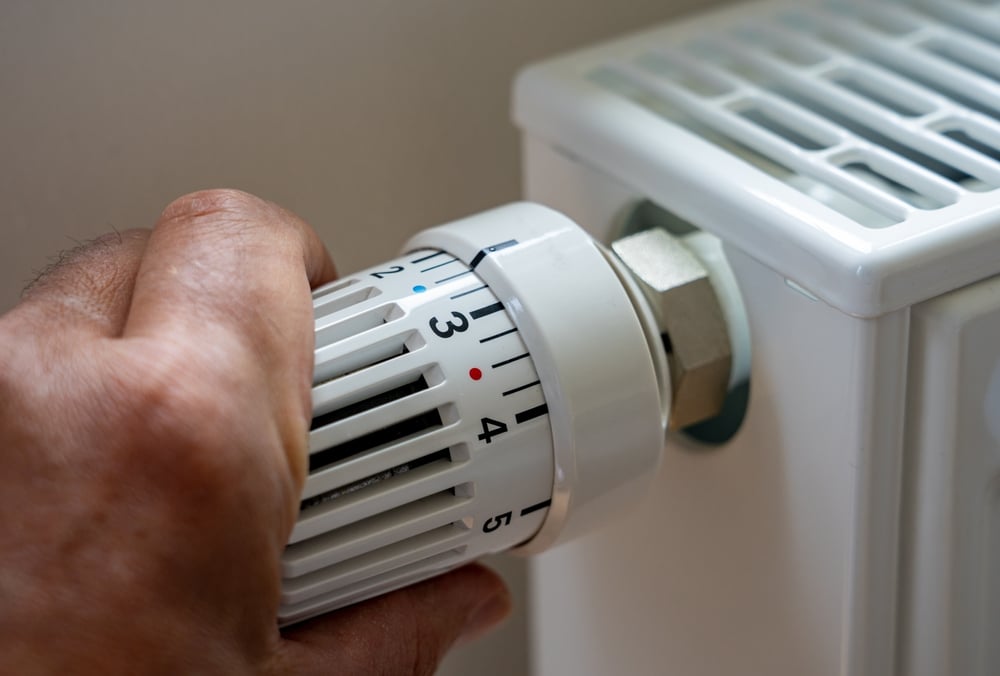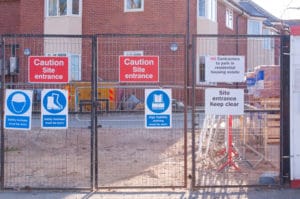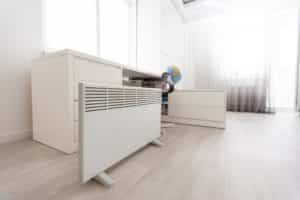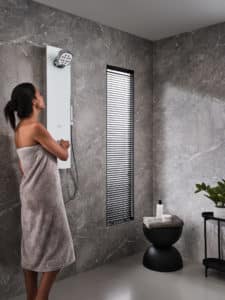With a frosty drop in temperature and still soaring energy costs, you’re probably wondering how you can cut back on the bills (while still staying toasty). Here we explore winter energy saving myths.
While the winter season – and the countdown to Christmas – brings with it plenty of joy, festivities and copious opportunities to eat your bodyweight in Quality Street, it does also offer up plenty of stress and worry. For us here at Buildpass, the question we are asked time and time again from our community is ‘how can I keep my energy costs down this winter?’
We all remember this time last year when energy costs shot through the roof. The energy-price crisis meant many families had to choose between ‘heat or eat’; and while costs are dropping, we are still in a situation where the overall cost of living means that many people are struggling to keep their homes adequately heated.
If you’re one of these people, then perhaps you’ve Googled ‘energy saving tips’ and ‘how can I lower my energy bills?’. You are not alone. The problem is that there’s so much fact and fiction to wade through before you get the answers you need.
With that in mind, we’ve pulled together a few of the most well known energy saving tips that are actually myths.
Energy saving myth #1: You should turn down the radiators in the rooms you don’t use.
Let’s start with one that isn’t totally untrue. While it is a good idea to turn down radiators in the rooms you don’t tend to use, this isn’t always going to have an impact on your energy bill. First of all, if you have a central heating system (which around 74% of UK homes possess), then you’ll end up using more energy if you turn off the heat in the room where your central thermostat is located.
In addition, by turning off the radiators while the heating is on, you’re essentially putting a stopper in the works. This disrupts the natural flow of heat, meaning your heat source must work harder to put the adequate heat into the property. So while less energy is needed, the efficiency is compromised which ultimately can cancel out any savings (and sometimes even cost more!).
It’s also worth noting that turning off radiators can lead to dampness, pipes freezing and, overall, inconsistent heating, aka less comfort!
Energy saving myth #2: It’s best to leave the heating on low all day.
There’s a bit of debate on this one, but the *official* answer is that leaving your heating on low all day actually leads to greater heat loss and higher costs. This comes from Energy Saving Trust, who say that leaving the heating on all day consumes more fuel and, particularly for older, draughty homes, the heat will escape through windows and doors.
If your home is poorly insulated, your boiler will need to constantly use energy to keep the temperature at the right level. Add in an inefficient boiler system and it’s a recipe for disaster.
Instead, opt to pump heat into your home when you need it – stop paying for energy and heat when you don’t. Timers on your thermostat are a brilliant way to manage this.
Energy saving myth #3: Devices on standby drain your energy.
While it’s true that devices on standby do use energy, the amount is truly minimal. Modern devices don’t use much electricity on standby due to EU regulations: TVs and other devices made since 2013 can no longer use more that 0.5 watts in standby mode. Putting this into context, a device left on standby for 20 hours a day would cost approximately a quid per year. Of course, any saving is a tick in our books, but it really isn’t as substantial as you’ve probably been told (or scare-mongered into thinking!).
Energy saving myth #4: Solar panels in Winter are useless.
For this one, we’ll turn to the mecca of energy efficiency, Iceland – the country where renewable energy provides almost 100% of their electricity production. Iceland (where there is a maximum of five hours of sunshine throughout December) still uses solar energy; so, what’s our excuse?
While solar panels undoubtedly work best in summer, they are fully capable all year round: even in below freezing temperatures. This is because solar panels absorb energy from sunlight, not the sun’s heat. It’s actually been suggested that cold climates are optimal for solar panel efficiency. Cool, huh?
RELATED: DO SOLAR PANELS INCREASE THE VALUE OF YOUR HOME
ALSO: WILL TRANSPARENT SOLAR PANELS REPLACE WINDOWS?
Energy saving myth #5: The majority of your heat escapes through windows.
Again, this is a bit of an exaggeration. Sure, heat can escape through windows. However, the majority leaks out of walls, gaps around windows and doors and your roof.
Northern Energy suggests that:
- Walls account for 35-45% of heat loss
- Roofs and attics account for up to 20% of heat loss
- Floors can account for up to 10% of heat loss in older homes
- Windows and doors account for the LEAST amount!
And these are clear reasons why insulation is King. We’ve written a blog about roof insulation, with five nifty tips, if you fancy giving it a read.
Energy saving myth #6: Smart metres save you money.
This one comes with a caveat – a smart metre won’t save you money on its own.
A smart metre’s job is to simply replace your existing gas and electricity metres, keep a record of your usage and automatically send these records to your supplier. It’s your job to take the information it shows you and use it to your advantage.
The key is to look at your day-to-day energy usage and think about ways to cut it back. If you used an extortionate amount of energy one day, ask yourself: what did I do that day? What devices did I use? How long was my heating on for? Keep asking questions until you can pinpoint what led to that spike. You can then find ways to cut back and save big.
Energy saving myth #7: Turning lights on and off uses more electricity than leaving them on.
Now we aren’t sure where this one originated, but every now and again it crops up again – and there’s absolutely no fact behind it! If you leave a room, turn the light off. It’s as simple as that. Switching lights on and off does not contribute to higher electricity use (and costs); leaving a light on when you aren’t in the space will.
Can Buildpass help me with energy efficiency in the home?
Of course, it’s what we do and who we are!
For starters, take a look at this blog on how you can actually save money during the cold winter months. You can then drop us a line for more advice, consultancy support or CPD training. We’d love to connect!




















